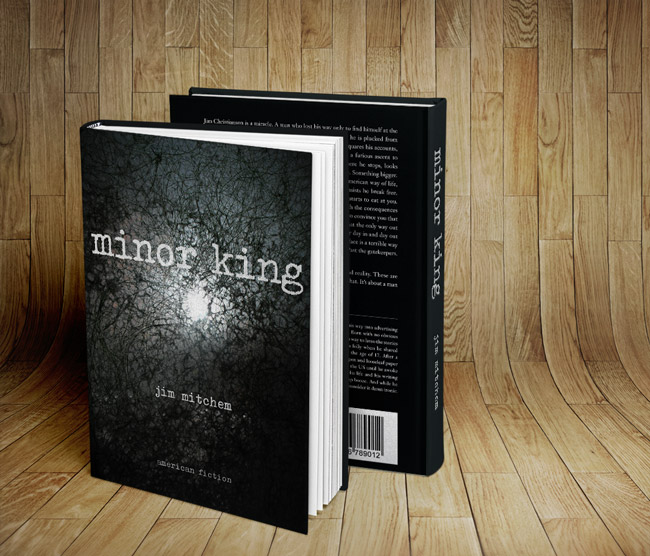
All young people should get a blog. I don’t care whether it’s a custom-hosted blog like this one, Medium, or Tumblr, teenagers should be documenting their ideas and experiences online in long form.
A friend shared an unfortunate story with me this week about his son who was kicked off of a sports team at school. The reason for the dismissal was that he’d said something on Snapchat that someone misconstrued as bullying, and the school has a one-strike policy. The administrators at the school didn’t even see the video. It didn’t matter. The person who brought it to their attention was passionate in their appeal, got parents involved, and well, that was that. The poor kid didn’t even get to share his side of the story. Gone. High school and college sports career over.
We live in a delicate age when the lure of fame and connectivity is just too much for most teenagers to handle. They’re only just now coming out with books on the subject of how these hyper-connective channels affect young minds. We’re all learning about these things at the same rate, on the same curve. And too often, the curve is dangerously steep. I remember when I dove into Twitter and Facebook in 2008 and was completely addicted to the idea of connectivity. As Maslow proved in his hierarchy of needs, human beings desire certain things. At the top of the list is self actualization. Below that, esteem. Below that, love. Social media affects all three of these things. So of course it’s addictive. At the time when I was hopelessly immersed in social, I was a full-grown adult. I was able to reel myself back in after some time, and now I use these platforms differently today. But imagine how it must be to a middle or high school aged person experiencing these things for the first time? They have no reference point to addiction. They just know that when they post a video or tweet, they’re getting feedback. Some good. Some bad. But it’s feedback. Maslow was no dummy.
No, you’re not going to stop your kids from using social media, in spite of the potential pitfalls. And yes, your teenager already uses them whether you accept it, or realize it, or not. However, one thing that most kids don’t see is that there’s a big digital world out there beyond Twitter and Snapchat’s short-lived platforms. Namely, blogging.
As most of us know, life is more than 140 characters. Storytelling is more than a series of short videos. And in those platforms, the story gets buried, or even disappears (sometimes), in short order. Replaced by newer content. Fresher stories. Which in turn only live for a few minutes and then also gets buried. It’s an unsustainable cycle for the act of storytelling. Sure, you can go back through someone’s Twitter feed and see what they’ve been saying for months or years, and while that might give you a snapshot of who a person is, the stories they’re telling there are just fragments.
Kids need to blog. They need to get started early in life and create more in-depth journals about their experiences. I routinely tell my daughters to write things down. To keep a diary. Because there will come a time when something seemingly insignificant right now will be important in the future. It’s been my experience as a parent that the changes young people go through to become adults is some of the most turbulent of their lives. Some good stuff. Some not-so-good stuff. But it’s all important.
Get your kids blogging. Tell them to keep a digital journal of the things they want to share with others. Get them to develop a library of stories that they can turn back to as they get older. When they’re forty and faced with a big decision, it would be fascinating to look back at how they handled big decisions when they were sixteen.
Had my friend’s son had a blog, he would have had a platform for telling his own side of the story about getting kicked off of the team. He’d be able to share this story with his friends who could make up their own minds about what happened. Hell, he may have even rallied people around his cause and got reinstated. But he didn’t. He just had Snapchat and Twitter. And the administrators had him by the balls because of it.
The other thing that blogging does for young people is help them become better writers. No matter what field they choose in life, they will be rewarded for their work when they learn to communicate clearly. Writing also forces them to organize their ideas, which leads to efficient thinking. Plus, when you’re focused on sharing your thoughts with an audience, it makes you more empathetic. Finally, writing helps young people move beyond communicating with emojis (Note: I’m not anti-emoji, I just have a hunch that adults will continue to rely on actual words and sentences in the future.)
Yes, blogging requires more time and thought than Twitter and Snapchat. And maybe that’s its tragic flaw since teenagers today are used to instant gratification. And no, blogging will not make them famous. Not right away, anyway. Maybe not ever. But getting teens into the habit of documenting ideas and experiences in longer form has too many benefits to ignore.
Introduce your teenager to blogging. They’ll thank you for it one day. Just probably not until they get through this turbulent stage of life.
***

Chip Sheehan
Mar 26, 2018
I love this!!! Thank you Jim!! I read your stuff all the time, but yes, yes, and yes my 13 year old daughter can and should listen to and follow your advice here. I had not thought of it, but Pamela, the English major, always encourages Kaylin to read, voraciously, which she does. This has helped her vocabulary to such a degree her friends talk about her use of “big .50 cent words” and more importantly her teachers have noticed and compliment her on her ability to speak properly. This, blogging, is something I had not thought of and as you point out, will help her become a better writer and give her a leg up in using the written word. Thank you Jim for your advice on this subject.